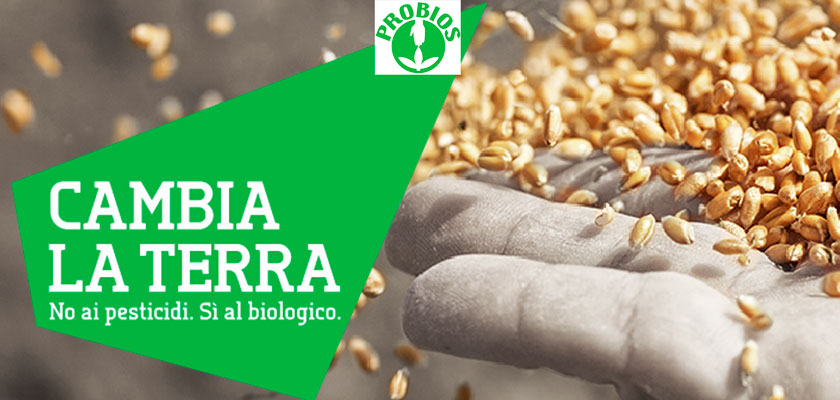
Have you ever wondered how many pesticides are in the food we eat? The results come from the D. family (mum Marta, dad Giorgio and their kids, Stella, 9 years old, and Giacomo, 7 years old), protagonist of the experiment supported by the campaign #ipesticididentrodinoi, an initiative part of the project “Cambia la Terra”, promoted by FederBio. The goal of the experiment was to show the connection between pesticides in our organism and our diet. So, a family of 4 accepted to undergone a test on the presence of pesticides in their urines and – after 15 days on a 100% organic diet, completely chemical free – to undergone the same test again to verify the presence, before and after the test, of pesticides. The whole campaign #ipesticididentrodinoi is documented on social network, so that, day by day, everyone could check videos and posts of the family on how their new diet is going. The 30th November, the family will share the final results, and will answer the question: is it possible, with just 15 days of organic diet, to reduce or completely eliminate the quantity of pesticides we daily absorb through food?
In the meantime, during this week, Marta and Giorgio will show us the results of the urine tests they ran before the organic diet experiment, also based on products by Probios, that has always supported the project.
The tests, based on an individual urine sample, has been analyzed by the Medizinisches Labor in Brema, an ISO certified lab, that already run the same type of test for Coop Denmark. The D. family, that has always been careful about their food choices, is still contaminated – in different percentages – by chemicals.
From the lab test results, the glyphosate – the most used herbicide in the world and a possible cancer-causing element according to the international cancer research institute – present in the kids’ urines, is above the average. For Giorgio, it is 2 times higher than the average (+116%).
Cloropirifos instead – an insecticide that acts on our nervous system, on our blood system and on our respiratory system – is worrying both for Marta and Giacomo, but also Stella’s results are higher than the average.
Piretroids – pesticides that affect our learning capacity, our nervous system, liver, heart, digestive system and blood - have been found in two of the most frequent metabolites (molecules where a chemical is separated): the CI2CA and the m-PBA. Every family member is positive to the presence of these pesticides, especially m-PBA. For Marta, the value is extremely high, higher than the 5% of the average. For the kids, the values are higher than the average both for m-PBA and CI2CA.
To see the video and to always be updated on every news, surf the website cambialaterra.it and follow them on social nework: Facebook cambialaterra and twitter @cambialaterra, with the official hashtag #ipesticididentrodinoi.





